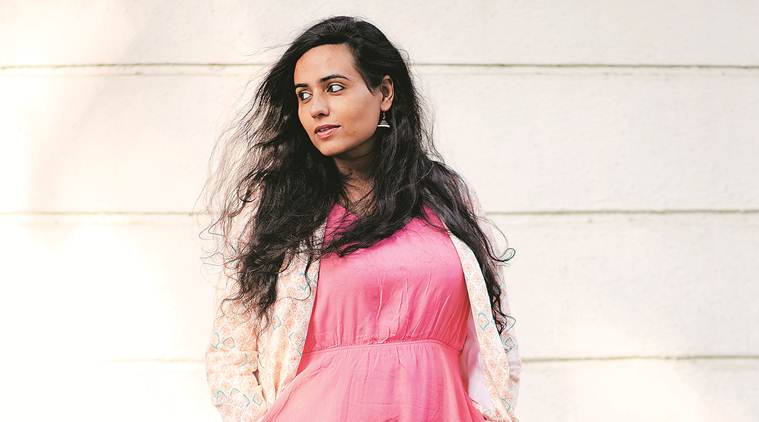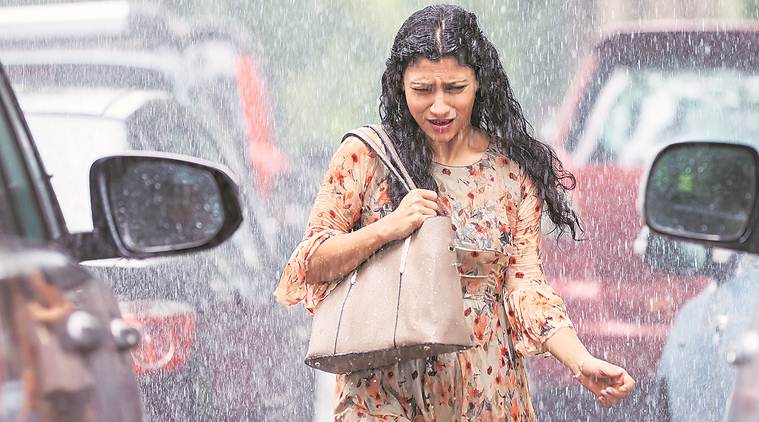
Screenwriter Gazal Dhaliwal’s latest release is an atmospheric love story, titled A Monsoon Date. The short film in which Konkona Sensharma plays the lead character — a transwoman seeking love — is currently streaming on the OTT platform of Eros. Dhaliwal, who has been credited for movies such as Ek Ladki Ko Dekha Toh Aisa Laga (2018) Qarib Qarib Singlle (2018) Lipstick Under My Burkha (2016) and Wazir (2016), talks about her sexuality, conflicts and her unique journey. Excerpts:
What was the trigger for the story of A Monsoon Date?
I’m personally fond of monsoons. Sometimes the outside reflects what’s inside you. There is a storm building up outside as it is inside the lead character. Almost nothing happens in the film yet so much happens with this one character as she is heading to a date she has been seeing for a month.
What are the challenges of a short film vis-a-vis a feature?
When you are writing a feature film, be mentally prepared to devote at least two years to it. I wrote A Monsoon Date in a month and we shot it in two-and-a-half days. Feature films have an arc with beginning, middle, and end. Short films too have a beginning, middle and end, but the scope is smaller.
You have been telling certain kinds of stories. Is it a conscious decision?
I’m conscious of the kind of work I want to do. I have been fortunate that something like Lipstick Under My Burkha came my way. That was the first movie I signed but the first one to be released was Wazir, for which I wrote additional dialogues. Qarib Qarib Singlle is my favourite as I love romcoms. Of late, there is a sense of exhaustion when it comes to romcoms as you feel that you have seen it all. However, I could sense that the flavour in this was new.

Being an IT engineer, how were you drawn to cinema?
The love for cinema was passed on to me genetically. My father had lots of video and audio cassettes. In hindsight, my life was so suffocating that watching Bollywood films was one way of believing that happy endings were possible. Coming from Patiala, my exposure to Hindi cinema was limited. Lamhe (1991) was my favourite film. It’s an unusual, almost impossible love story. I always thought if I ever find love, it would be an impossible love story.
What prompted you to quit your job and study filmmaking at Mumbai’s Xavier’s College?
During school and college days, I used to direct plays. In the ’90s, career options were limited in smaller towns. Since I was good in math, I pursued engineering and joined Infosys. I was posted in Mysore for two years, which was a dark period in my life; I didn’t have friends. The worst was that the Karnataka government passed a law that Hindi movies won’t release at the same time and would show only three weeks later. Cinema was a respite for me. That’s when I thought of giving movies a shot.
Two years after you joined the course, you underwent a sex reassignment surgery in 2007. Are these two decisions connected?
When I moved to Mumbai, I had two dreams — to undergo the sex-change procedure and work in movies. I told myself that since my first dream will never come true, at least, I must not let go of the other. As part of our diploma, my group made a documentary on transgenders. We spoke to people from the hijra community, transsexuals, and surgeons. Once again, I was hopeful of opting for a sex change. I took the documentary home and showed it to my parents. When it ended, my dad turned to me and said: “So, when are you doing it?”
Had you anticipated their support?
Not immediately. I thought I would have to do some convincing but the film did the trick. My father is progressive while my mother is conscious of what people will say. Both my parents have loved me immensely and been protective about me. When I came out to my father at the age of 14, he obviously didn’t understand everything but he told me that he was there for me.
Did their support make it easy?
It is never easy. It is like your own body is your prison. I had lived like that for 25 years. There was constant bullying in school and ragging in college. A transgender person’s existence is lonely. There might be people who love you but they can never identify with what you are going through.
Are there biases in the Indian film industry too?
I have received appreciation and respect in the industry. But, my work should be my identity not my gender. I have been lucky to work with progressive people. The industry always had a lot of gay people in it. Yet, from the business point of view, the LGBTQ stories don’t fit in. They assume the masses won’t accept these stories. While there is an understanding, the products that we create don’t reflect that. That is changing now.